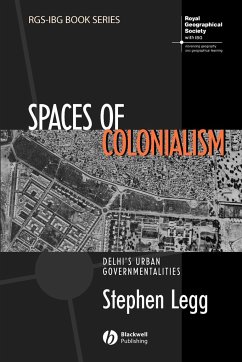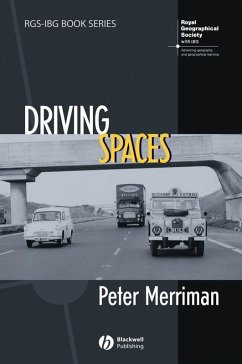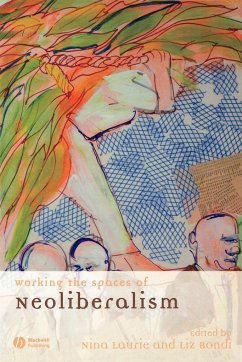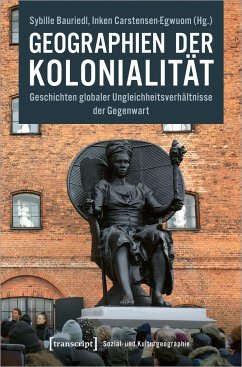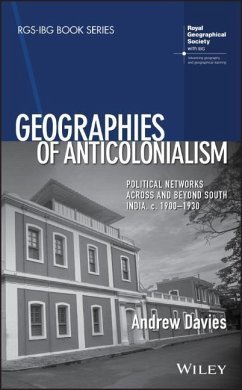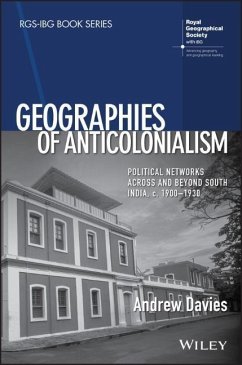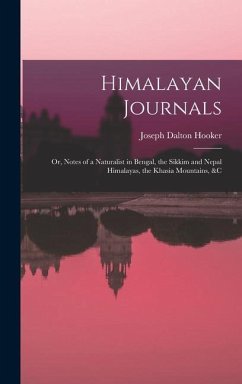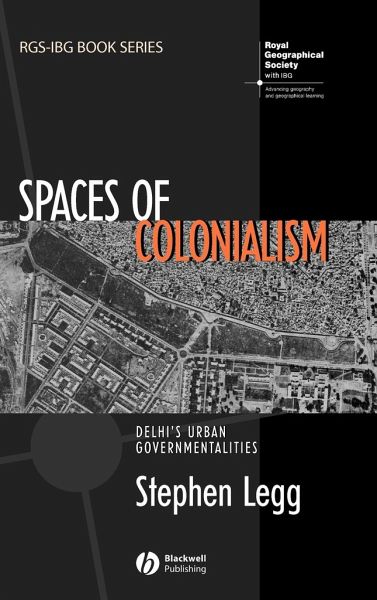
Spaces of Colonialism
Delhi's Urban Governmentalities
Versandkostenfrei!
Versandfertig in über 4 Wochen
89,99 €
inkl. MwSt.
Weitere Ausgaben:

PAYBACK Punkte
45 °P sammeln!
Drawing upon the theories and methodologies of governmentality as presented in Michel Foucault's translated lecture courses, Spaces of Colonialism provides an analysis of the attempts made by the Government of India to secure and order Delhi, the capital of the Raj from 1911 to 1947. Following the path from New Delhi to Old Delhi, this book contains a mass of new empirical data that illustrates how these seemingly separate cities were united by shared political rationalities and landscapes of control. Beginning with a critical analysis of the colonial governmentality literature and a situation...
Drawing upon the theories and methodologies of governmentality as presented in Michel Foucault's translated lecture courses, Spaces of Colonialism provides an analysis of the attempts made by the Government of India to secure and order Delhi, the capital of the Raj from 1911 to 1947. Following the path from New Delhi to Old Delhi, this book contains a mass of new empirical data that illustrates how these seemingly separate cities were united by shared political rationalities and landscapes of control. Beginning with a critical analysis of the colonial governmentality literature and a situation of Delhi in the history of India, this text examines the residential landscape of New Delhi, the policing of the new and old cities, and the biopolitical needs and improvements that arose in the urban landscape. The formative role of problematizations and resistance in driving these changes is stressed throughout and provides a historic basis for a contemporary critique of colonial governmentality. This ground-breaking text is the first comparative history of New and Old Delhi, making it an essential resource for scholars looking to stay ahead in a number of fields, including cultural theory, colonial history, urbanism, and post-colonial studies.





